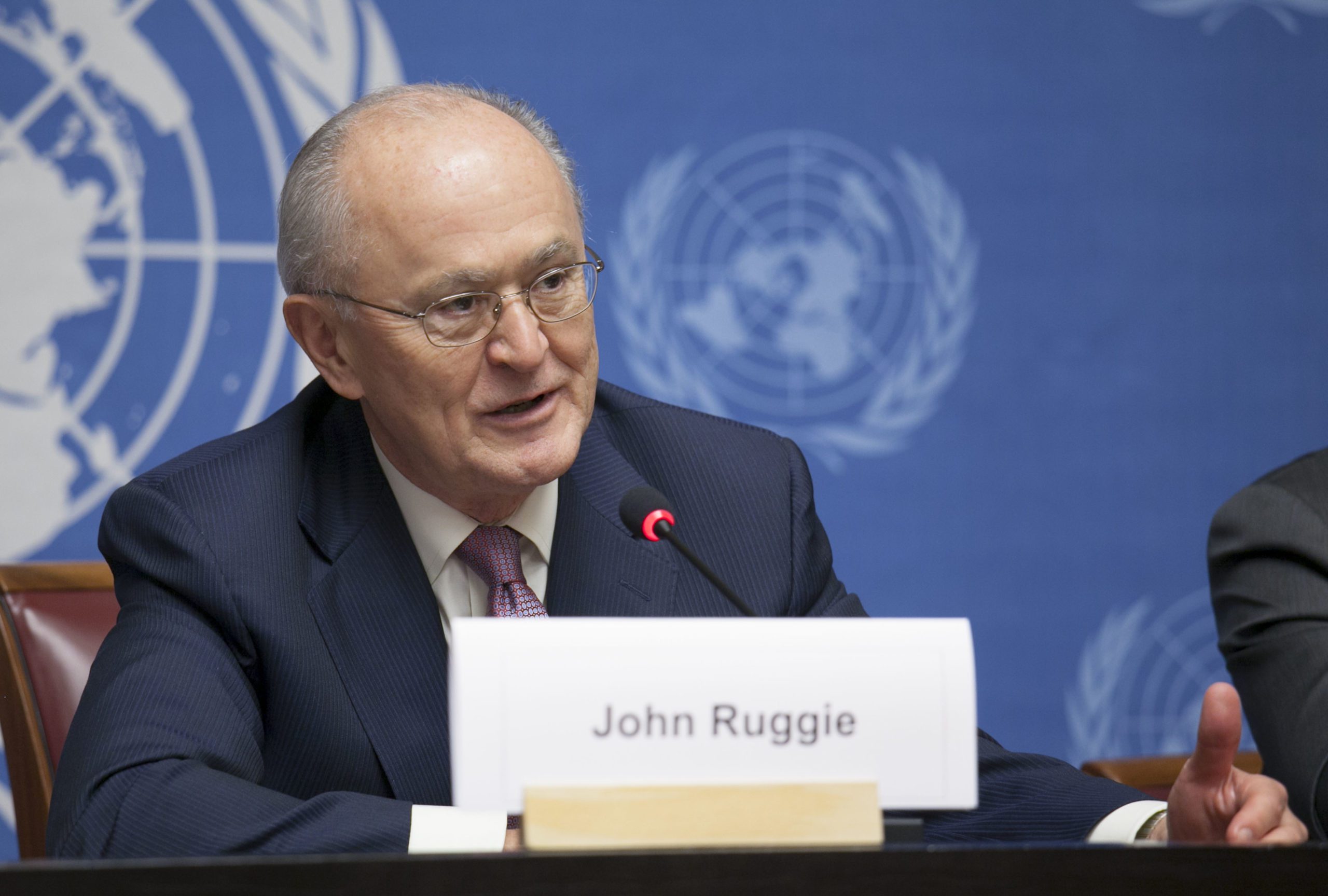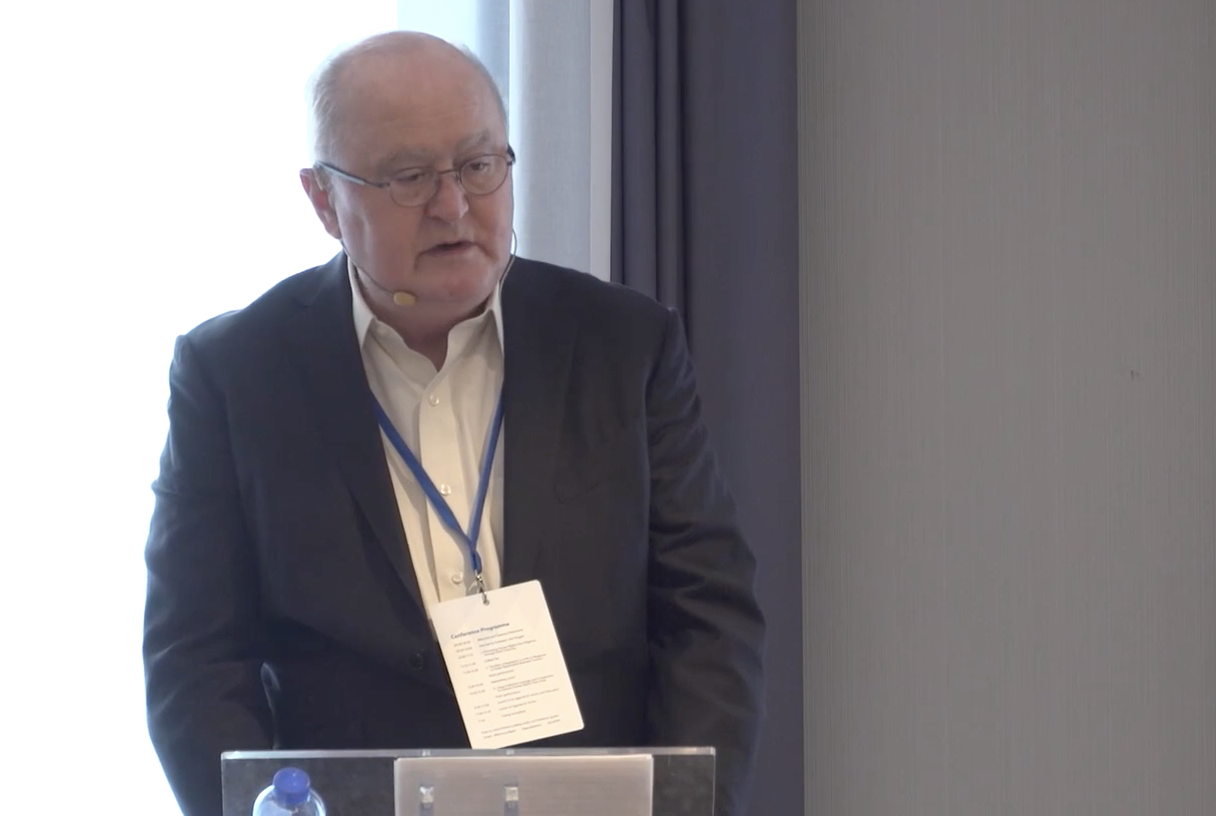As the author of the UN Guiding Principles on Business and Human Rights, I am very pleased to participate in today’s launch of the UN Working Group’s project to further drive the implementation of the UNGPs. My thanks also to Germany and the other sponsors for their support.
The Working Group’s project is forward-looking. So are the UNGPs. They embody two core strategic concepts that are as relevant today as they were in 2011 when the Human Rights Council endorsed them unanimously.
- The first is leveraging opportunities to drive human rights considerations into everyday decisions by businesses and governments.
- The second is the need for a smart mix of measures, national and international, voluntary and mandatory, in order to achieve that aim.
In big picture terms, what guidance do they provide as we look ahead? Let’s look first at leveraging human rights into the mainstream.
Today, there is near-universal consensus on the need to build back better from the worst pandemic in a century, and for many countries possibly the worst recession since the Great Depression. Building back better must not become a slogan for some technical fix. It should serve as a call for a fundamental rethink of how things are done, one which puts people at the center rather than treating them as a factor of production.
Building back better must not become a slogan for some technical fix. It should serve as a call for a fundamental rethink of how things are done, one which puts people at the center rather than treating them as a factor of production.
In addition, for the first time in a half-century, a serious debate is taking place within the business community itself regarding the social purpose of the corporation. Is it merely an instrument to serve the interests of securities holders? Or is it a social entity that should also serve a broader range of stakeholders, including workers and communities – whether they are next door, at the other end of global value chains, or virtual?
Or take yet a third opportunity, the remarkable rise in ESG investing – incorporating environmental, social, and corporate governance criteria into investment decisions. ESG investing, modest in scale until the 2008 financial sector meltdown, now accounts for close to one-third of all assets under management globally. Virtually every theme under the S in ESG addresses human rights: workplace standards, diversity and inclusion, community relations, and so on. But ESG analysts, data providers and asset managers don’t yet seem to be aware of this. As a result, the widely different metrics they use to measure the S factors make it hard to compare performance across firms and sectors.
In short, we are surrounded by opportunities to drive human rights considerations into every-day decisions by business and governments: building back better, the corporate purpose debate, and ESG investing. Let’s seize them.
A smart mix of measures is required to support these transformative opportunities. What would that look like in the context I have sketched out? To make it concrete, let me focus on the EU as an illustration.
A smart mix of measures would begin with consideration of the kind of mandatory human rights due diligence Commissioner Reynders has just described.
It would link the due diligence provisions to the revision of the non-financial disclosure requirements the EU is also undertaking – it makes good sense for the two to reinforce one another. In turn, this means that the materiality construct in the reporting requirement recognizes potentially high impact risks that are emergent but not yet imminent, which is the case for climate change and certain human rights harms.
Furthermore, a smart mix would include drawing on these initiatives to promote greater consistency among ESG standards, for which everyone is clamoring but no authoritative entity is providing.
Finally, this level of policy coherence would provide the EU External Action Service with a robust position for engaging in the ongoing business and human rights debate in Geneva.
Our fragile world is in desperate need of systemic change. Unconnected fragments here and there will not achieve the outcomes we need. Thank you again, and bon voyage to the Working Group as it heads towards a decade of global implementation.

